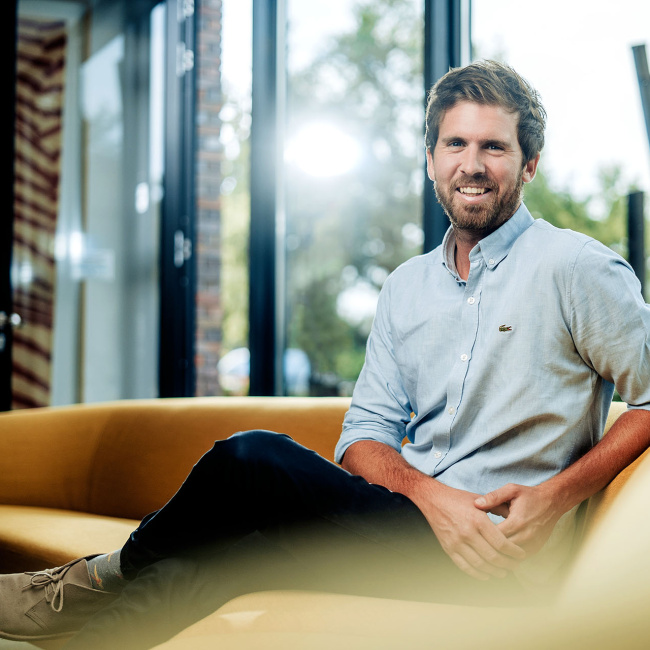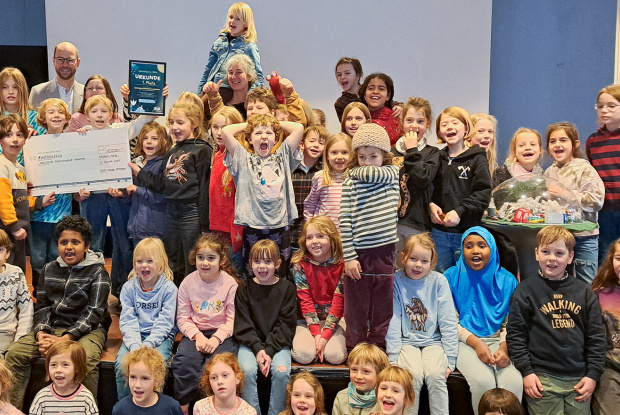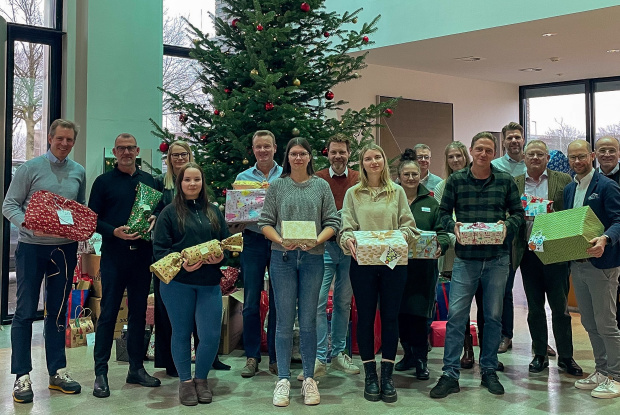The Josef Fiege Foundation awards environmental prize to elementary schools
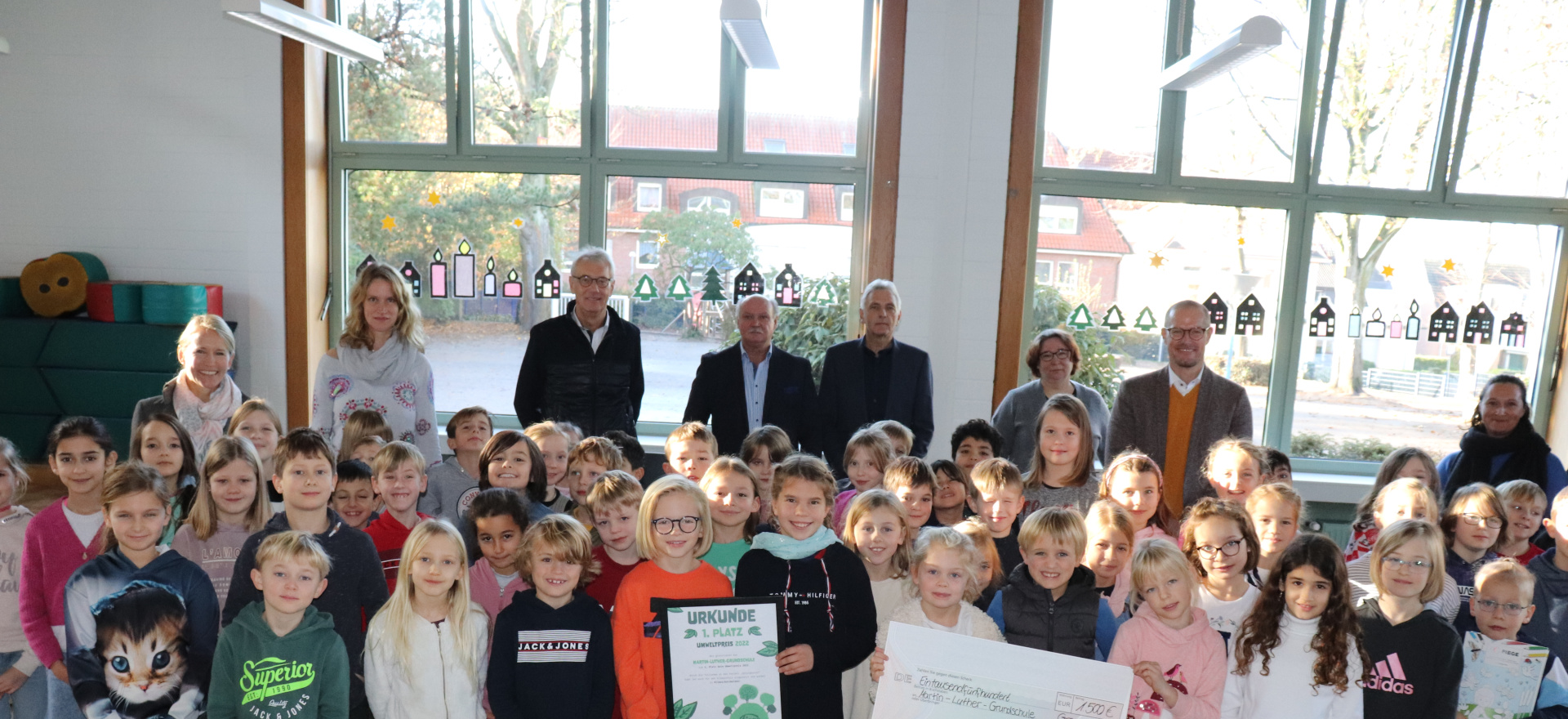
It’s never too early. That also goes when it comes to sustainability. Three Greven elementary schools that have been promoting environmental protection projects together with their pupils, have been awarded the 2022 Environmental Prize from the Josef Fiege Stiftung for their commitment.
Young climate heroines and heroes were sought and found: The Josef Fiege Stiftung awarded its 2022 Environmental Prize to three Greven elementary schools who have been campaigning for the protection of the environment with sustainability projects. “A big compliment and heartfelt congratulations to all prize winners”, said Kai Alfermann, one of the four Directors on the Board of the Josef Fiege Stiftung who, together with his colleague Martina Schlottbom, presented the winners’ certificates. “We had the privilege of viewing many really great and exciting projects while selecting the prize winners. It was quite impressive to see just how extensive the pupils’ awareness is on the subject of sustainability even at that young an age. We hope we were able to extend that extra little bit of motivation with the environmental prize, to help these projects advance steadfastly even in future.”
Around 50 schools from Greven and Münster were given the opportunity to apply for the 2022 Environmental Prize with their sustainability projects. The winning entry, which also received 1,500 euros in prize money and a sponsored excursion to an organic farm, was submitted by the Martin Luther School from Greven which convinced the jury with its school garden. “This exceeds all our expectations”, the school’s principal, Christina Hagemeyer explained, adding that “we are very grateful for this prize.” It is a wonderful reward for all the hard work invested into the school garden, especially for the kids. “Protecting our environment starts with understanding and grasping nature and precisely that is possible with our school garden”, said Hagemeyer. “We are very happy about this special learning space. Also, the tomatoes, potatoes, and pumpkins that we harvest are very tasty. Our school’s kitchen is very skilled at turning them into fresh, tasty dishes.”
1,000 euros in prize money went to the runners-up, Greven’s Martini School for their climate kilometre project. The children themselves came up with the idea behind it: The pupils, whenever possible, were not to have their parents take them to school by car, but rather were to walk together, or come by bike, scooter, or bus to avoid unnecessary air pollution. The school’s principal, Agnes Langenhoff was thrilled about the outcome: “The wonderful thing about this project is that is has such a sustainable impact. Fixed walking communities were properly created which also sensitised children about how, together, it is possible to set a lot in motion in terms of climate protection.”
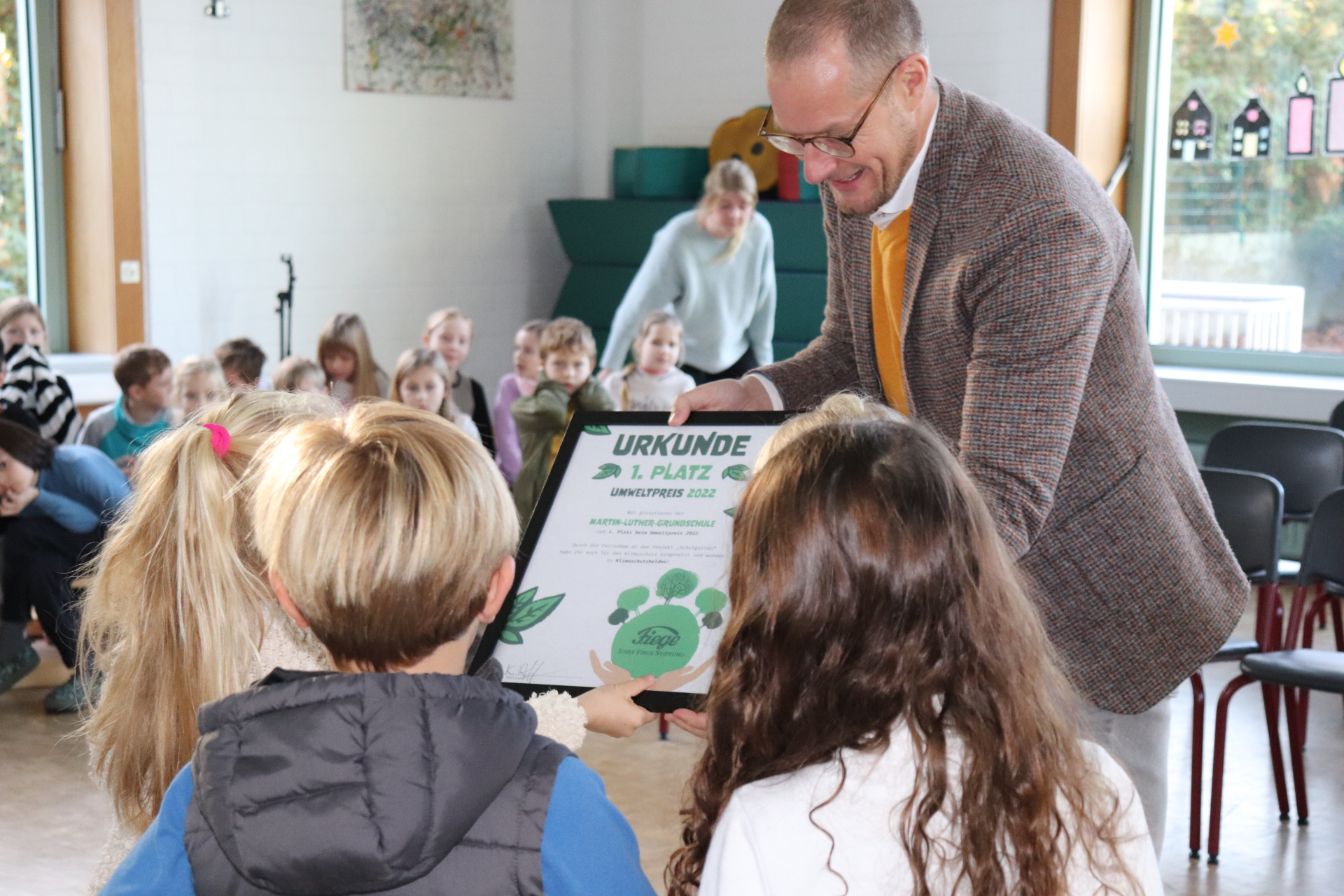
The main prize and prize money of 1,500 euros went to the Martin Luther School from Greven. (Photo: FIEGE)
Der zweite Platz und ein Preisgeld in Höhe von 1.000 Euro gingen an die Grevener Martinischule für ihr Klima-Kilometer-Projekt. Die Idee dahinter, die von den Kindern selbst ausgearbeitet wurde: Die Schülerinnen und Schüler sollen, wann immer möglich, nicht von den Eltern mit dem Auto zur Schule gebracht werden, sondern lieber gemeinsam laufen oder mit dem Rad, Roller oder Bus fahren, um unnötige Luftverschmutzung zu vermeiden. Schulleiterin Agnes Langenhoff zeigte sich begeistert von den Ergebnissen: „Das Schöne an dem Projekt ist, dass es einen so nachhaltigen Effekt hat. Es haben sich richtige und feste Laufgemeinschaften zusammengefunden, und es hat die Kinder dafür sensibilisiert, dass man gemeinsam viel bewegen kann in puncto Klimaschutz.“
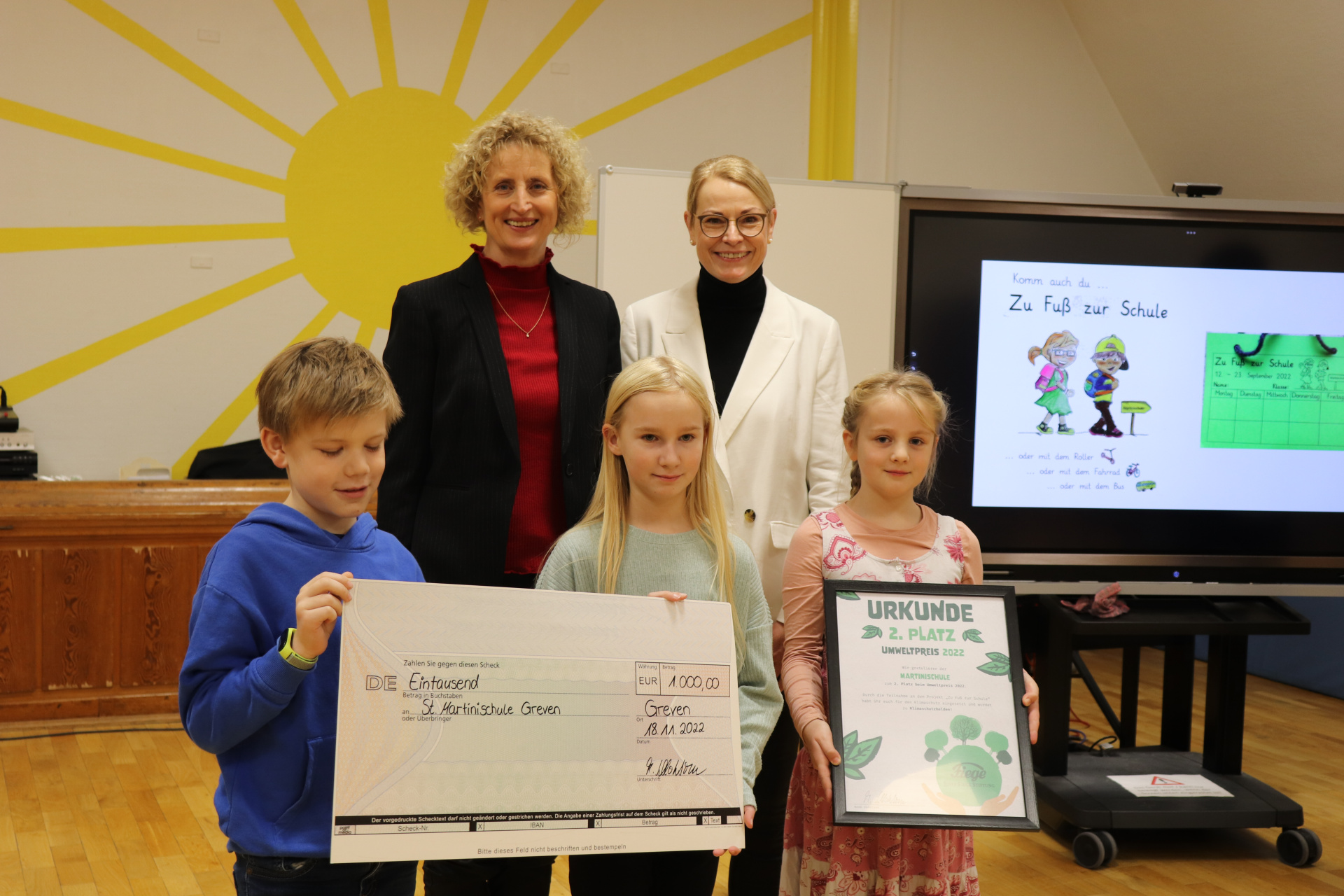
The second place of the Josef Fiege Foundation's environmental award, endowed with 1,000 euros in prize money, went to the Martinischule in Greven. (Photo: FIEGE)
The third spot and 500 euros in prize money went to Marien Elementary School in Greven. The pupils’ efforts in sorting waste were distinguished. The persistent separation of waste in classrooms, tutorials on recycling and upcycling, shared refuse collection campaigns within the school’s environs and an exchange platform where toys no longer used could be passed on rather than thrown away: The list of measures that the pupils came up with is long. Very much to the pleasure of the interim school principal, Agnes Langenhoff: “This project taught the children that environmental protection can be fun. It also helped them to develop a feeling for realising that the best waste is waste that is not created. To now receive an award from the Josef Fiege Stiftung for their efforts will surely further spur their enthusiasm on how to aptly sort waste and, in an ideal scenario, avoid it in general.”
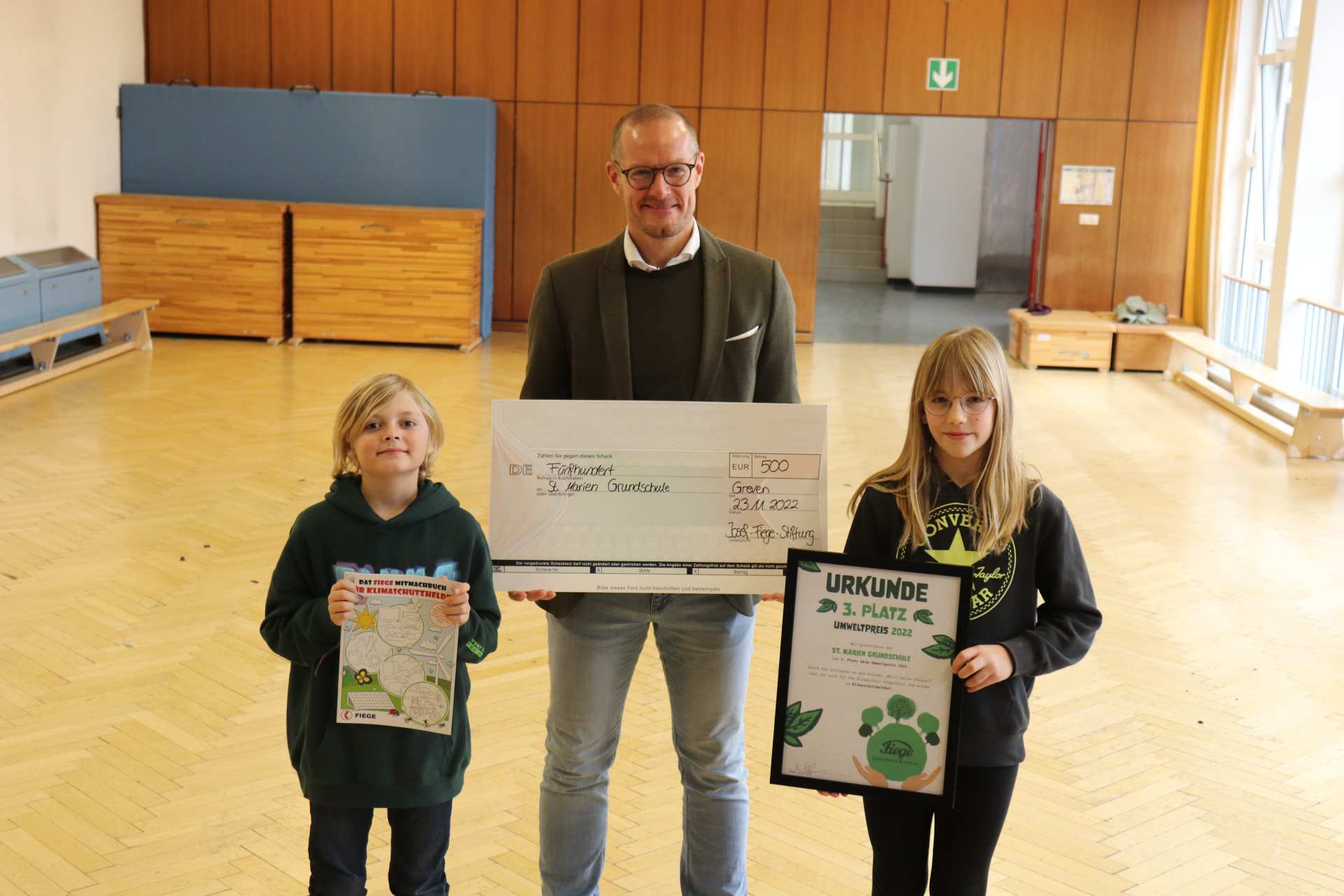
The Mariengrundschule in Greven was delighted with third place and 500 euros in prize money. (Photo: FIEGE)
